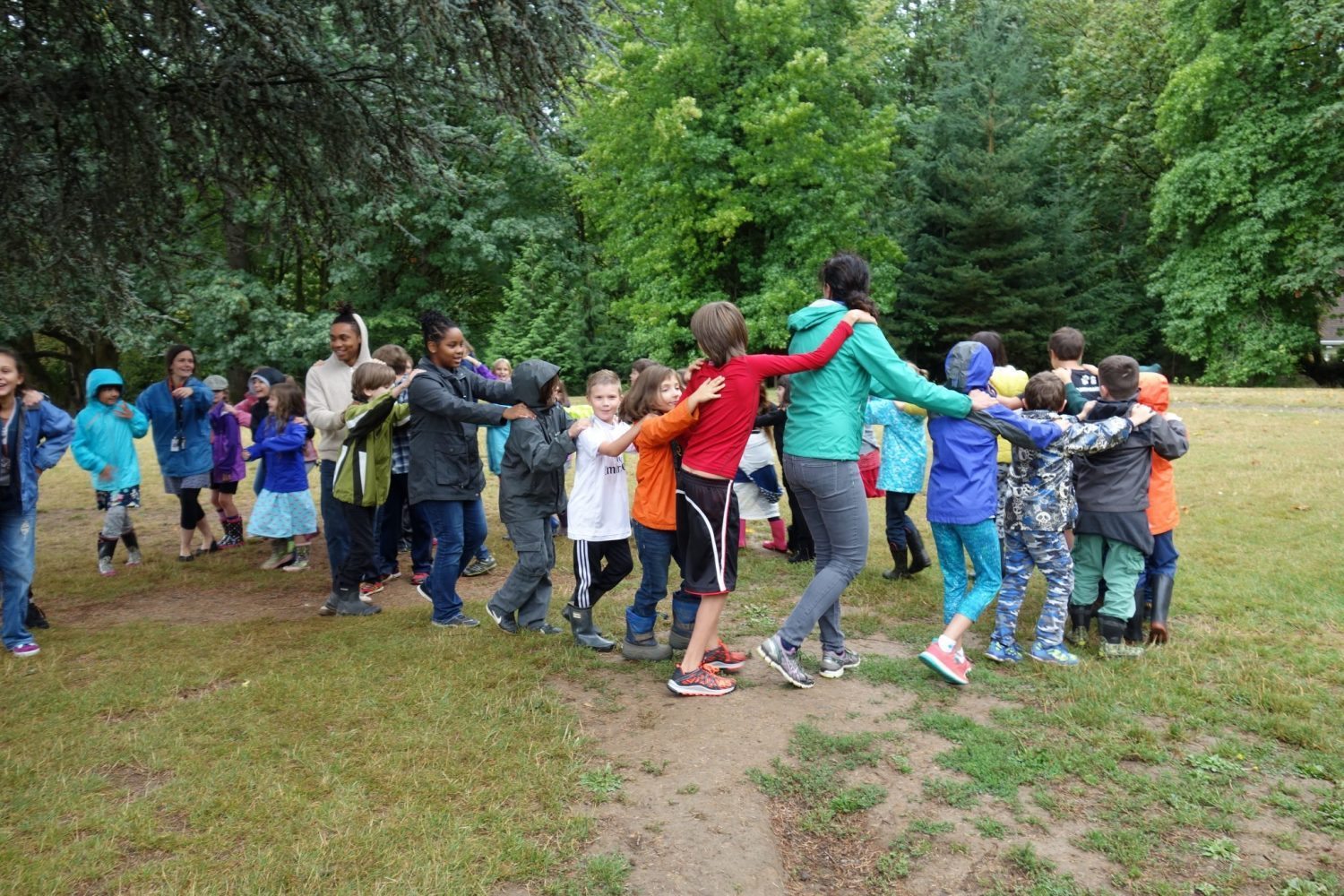Setting Intentions for Our Year Together – Intermediate Team

Opal School has two intermediate classrooms, Opal 3 & 4, which include third-, fourth-, and fifth-graders. In many ways, the teachers from the two classrooms function as a team. As a first collaborative effort, the Intermediate Team composed and sent this letter to parents before the first day of the 2016-2017 school year. We’d love to hear the reflections of Opal School Online members:
- What do you notice? What do you wonder about?
- How do you imagine the process of composing this letter will influence the work of this group of teachers?
- How might it influence the experience of children?
- What might be the experience of parents receiving this letter?
- What connections and implications do you see to your work?
Dear Intermediate Families,
At Opal School, we see all children as creative and competent and full of gifts the world needs. We see them driven to connect, eager to empathize and be understood. We know that play is children’s natural learning strategy and that the arts are powerful pathways to developing understanding of ourselves, each other, and complex ideas.
Opal School staff came together last week to read, talk, play and to share and discuss big ideas and questions for the year ahead. Our current political climate is looming large. We expect the children to arrive full of curiosity as they have no doubt spent some of their summer observing the confusing behavior of adult leaders in our country. With these issues in mind, together as a staff we read two essays: Speaking in Tongues by Zadie Smith and The Mistrust of Science by Atul Gawande. In her essay, Smith encourages us to work towards building a community that reflects a “proper and decent human harmony.” And Gawande writes, “Even more than what you think, how you think matters. The stakes for understanding this could not be higher than they are today, because we are not just battling for what it means to be scientists. We are battling for what it means to be citizens.” Our intermediate community intention is to guide and support the growth of children’s thinking strategies. It is our goal to build on the tremendous strengths of their natural learning strategies towards a more disciplined capacity for thinking and imagining.
This year, the Opal School Intermediate Team is particularly curious about relationships between play, the arts, and education for democracy. We wonder:
How can our year together lead children to recognize the ways in which they can apply their gifts to the world’s needs? How will children gain experience in seeing how their ways of thinking can increase justice and well-being?
Opal School’s Goals and Expectations are designed to support exploration of these important questions. While teachers look through the lens of all ten of the deeply interconnected goals and expectations, the intermediate community will focus in particular on these two this year:
- Take action as mindful citizens who care about making contributions to a future that acknowledges living systems as an integrated whole. and
- Develop an understanding and curiosity about multiple points of view. Have value and empathy for experiences and perspectives different from one’s own.
Embedded in work with these goals is the opportunity to develop many essential life skills and habits of heart and mind. We will be especially interested in seeing these particular habits develop this year: Critical and interdependent thinking; empathy; persistence; innovation; risk-taking; flexibility; collaboration; and perspective-taking.
As children witness the erosion of respectful public discourse, it is confusing to be a student at Opal School, where we value rich dialogue, healthy debate, listening, collaboration, empathy and perspective taking. We work hard to check our assumptions and to break down stereotypes. As the world of Opal and the world outside diverge, we hear a cynicism in the children’s observations and comments that concerns us. It is a priority this year to help the children recognize that only by practicing healthy and productive public discourse like we do at school can we create memories of possibilities that they can be responsible for bringing with them into the world. We want to nurture in the children a growing sense of responsibility for their own actions; to see themselves and their actions as directly connected and thus influencing the school community, and the wider world.
Together, we’ll be asking:
What leads people to act for others as well as for themselves? What happens when they do? How does using design thinking strategies support real world problem solving and inspired action? What is a natural human harmony and how does a community achieve it? How can we pursue ideas and experiences with curiosity, inquisitiveness, openness, and discipline? What happens when we suspend judgment and seek understanding? What does it mean to understand?
While these are big overarching questions we’ll pursue as an intermediate community, each classroom has its own focus questions for the year ahead. In Opal 4, we’ll frame our work through stories of Oregon history. We’ll be asking questions such as: What does it mean to be an Oregonian? An immigrant? A native? How did we become Oregonians? Who came before us? What are their stories? How do we harness the power of language to take action for justice? How is empathy a tool to make your life better? How is play a tool for democracy? In Opal 3, we’ll frame our work with the intention to develop an understanding of the concept of interdependence and to build a capacity for interdependent thinking. We’ll be asking questions such as: How are communities and living systems related? What systems and cycles can we identify and what can we learn from them? What systematic ways of thinking can we use to examine and solve problems?
We can’t wait to begin!
Warmly,
Hannah, Christina, Susan, Matt, Xavier, Lauren, Tina, Mary Gage and Sarah
